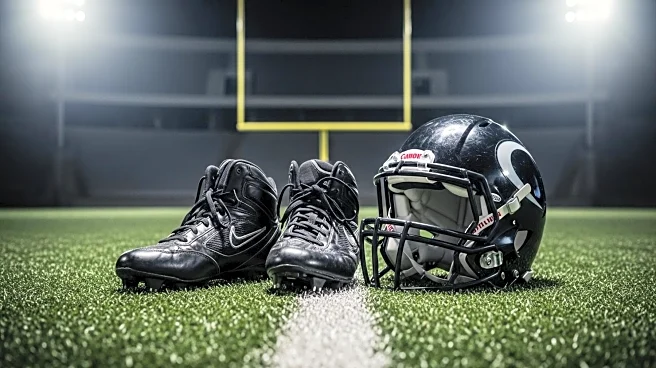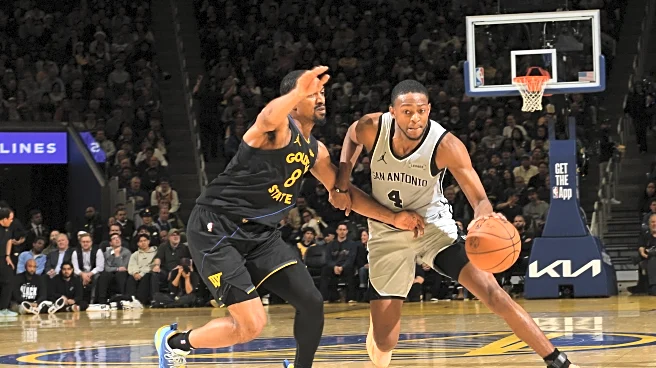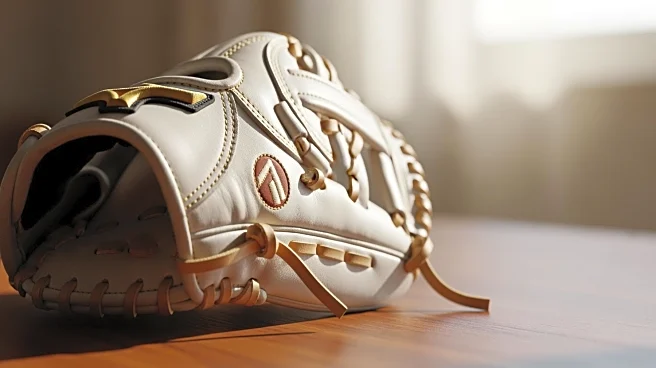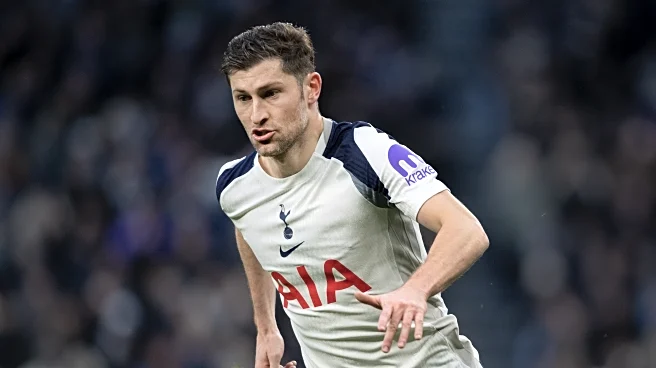What is the story about?
What's Happening?
During a Week 4 NFL game, New York Giants wide receiver Malik Nabers sustained a significant knee injury. The incident occurred in the second quarter as Nabers attempted to catch a deep pass from rookie quarterback Jaxson Dart. Nabers stumbled during his jump and landed awkwardly, clutching his right knee in apparent pain. He was subsequently carted off the field and ruled out for the remainder of the game. Initial reports from NFL Network's Ian Rapoport suggest that Nabers may have suffered a torn ACL, which could end his season prematurely. An MRI is scheduled for Monday to confirm the extent of the injury. At the time of the injury, the Giants were leading the Los Angeles Chargers 10-3, with Nabers having recorded two catches for 20 yards.
Why It's Important?
Malik Nabers' injury is a significant blow to the New York Giants, as he is a key player in their offensive lineup. Nabers had an impressive rookie season in 2024, with 109 receptions, 1,204 yards, and seven touchdowns. His performance in the current season has also been strong, with 16 receptions, 251 yards, and two touchdowns over three games. Losing Nabers could impact the Giants' offensive strategy and their chances of success in the current NFL season. The injury also highlights the physical risks associated with professional football, where players are often susceptible to severe injuries that can affect their careers and team dynamics.
What's Next?
The Giants will await the results of Nabers' MRI to determine the full extent of his injury. If the ACL tear is confirmed, Nabers will likely undergo surgery and face a lengthy rehabilitation process. The team will need to adjust their offensive strategy in his absence, potentially relying more on other receivers or altering their play-calling. Head coach Brian Daboll and the Giants' management will also need to consider roster adjustments to fill the gap left by Nabers. The outcome of the MRI will be crucial in shaping the team's plans moving forward.

















